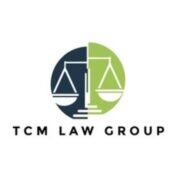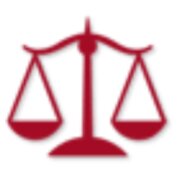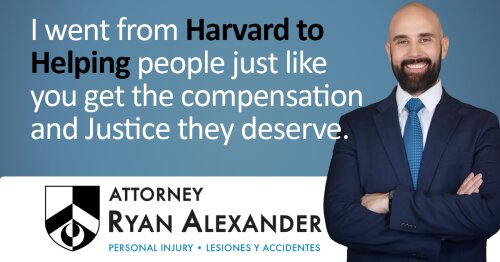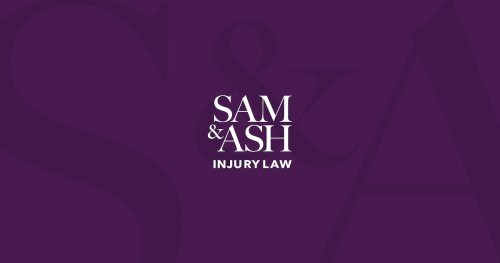Best Drugs & Medical Devices Lawyers in Las Vegas
Share your needs with us, get contacted by law firms.
Free. Takes 2 min.
List of the best lawyers in Las Vegas, United States
About Drugs & Medical Devices Law in Las Vegas, United States
Drugs and medical devices law covers a broad range of legal topics that affect manufacturers, distributors, health care providers, pharmacies, patients, and consumers. In the United States this area is governed by a mix of federal regulation - primarily the Food and Drug Administration for safety, approval, labeling and recalls, and the Drug Enforcement Administration for controlled substances - and state law that regulates licensing, professional discipline, malpractice, product liability, criminal enforcement, and consumer protection. In Las Vegas most matters are handled under Nevada law and local enforcement by Clark County and municipal agencies, while manufacturers and distributors often face federal regulatory oversight and civil litigation in state and federal courts.
Common matters include defective or dangerous drugs and medical devices, product recalls, injuries caused by improper use or misuse of a device, prescription drug distribution and diversion, controlled substances enforcement, professional disciplinary actions against clinicians and pharmacists, False Claims Act and fraud cases, and mass torts and class actions involving many injured people. Because the field combines complex science, regulatory rules, and litigation procedures, both individuals and businesses often need specialized legal help.
Why You May Need a Lawyer
You should consider consulting with a lawyer if you or a loved one has been harmed by a drug or medical device, if you are the target of a government investigation, or if you face professional discipline related to controlled substances or device management. Specific situations include suspected adverse reactions or injuries after taking a prescription drug or using a medical device, delayed or inadequate recall notices, denial of compensation by insurers or manufacturers, disputes over informed consent for a device implanted during a procedure, and potential criminal charges for illegal distribution or possession of controlled substances.
Businesses and health care providers also need legal advice for regulatory compliance, product development and labeling, postmarket surveillance, responding to FDA inspections or 483 observations, handling product recalls, dealing with defective-component suppliers, and defending product liability or class action suits. A lawyer with experience in this area can help identify applicable laws, preserve and interpret medical and manufacturing records, coordinate with expert witnesses, negotiate settlements, and represent you in court or at administrative hearings.
Local Laws Overview
In Las Vegas the legal framework is shaped by federal regulation and Nevada state law. At the federal level the FDA controls approval and market authorization for most drugs and medical devices, sets labeling standards, and oversees postmarket safety monitoring and recalls. The DEA enforces the federal Controlled Substances Act and targets unlawful distribution and diversion of narcotics and other controlled medications. Federal civil enforcement can include False Claims Act actions when drugs or devices are billed to government health programs.
At the state level Nevada licenses and disciplines health care professionals, pharmacies, and facilities. The Nevada Board of Pharmacy and the Nevada Board of Medical Examiners regulate dispensing and prescribing practices, and the state maintains a prescription monitoring program to track controlled substance prescriptions. Nevada law also provides causes of action for product liability, negligence, breach of warranty and consumer protection claims. Local prosecutors in Clark County and municipal authorities in Las Vegas handle criminal drug prosecutions and public-safety issues related to controlled substances and illegal distribution.
Practical local considerations include timely reporting obligations to state boards when a patient is harmed, requirements for maintaining and producing pharmacy and medical records, obligations to report and respond to product recalls, and the need to preserve evidence and chain of custody when a product or drug is implicated in harm. Nevada procedural rules and local court practices also influence how cases proceed in Clark County courts and federal district court for the District of Nevada.
Frequently Asked Questions
What should I do first if I think a drug or medical device hurt me?
Seek medical attention immediately and ask your treating provider to document the suspected adverse reaction or device problem in your medical record. Preserve any product, packaging, prescriptions, receipts, and photographs. Record dates, times, and names of treating clinicians. Contact a lawyer experienced in drugs and medical devices as soon as possible so evidence can be preserved and legal deadlines can be identified.
How do I know whether to pursue a claim against a manufacturer, a doctor, or both?
Liability depends on the facts. A manufacturer can be responsible for design defects, manufacturing defects, or inadequate warnings. A doctor or hospital can be liable for malpractice if treatment or implantation fell below the accepted standard of care or if informed consent was not obtained. A lawyer can review medical records, device history, and regulatory documents to determine the strongest legal targets and create a strategy that may include multiple defendants.
What types of compensation can I recover in a drug or device case?
Potential recoverable damages typically include medical expenses, future medical care, lost income, loss of earning capacity, pain and suffering, and in some cases punitive damages if the defendant acted with malice or reckless indifference. The exact remedies depend on whether the claim is product liability, malpractice, or another cause of action, and on Nevada law and court rulings.
How long do I have to file a lawsuit in Nevada?
Timelines known as statutes of limitation vary by type of claim and can be complicated by discovery rules or special exceptions. Deadlines can be short, and failing to file within the required period can prevent recovery. Because of this complexity, consult an attorney promptly to confirm the applicable deadlines for your case.
What role does the FDA play in my case?
The FDA regulates approval, labeling, and postmarket safety. FDA findings, recall notices, adverse event reports, and inspection records can be important evidence in civil cases, but an FDA clearance or approval does not make a product immune from state law claims. Conversely, regulatory compliance can be relevant to defense strategies. Your lawyer will assess public and regulatory records as part of case development.
Can I take part in a class action or mass tort for a defective drug or device?
When many people are affected by the same product, claims may be brought as class actions or coordinated mass torts. Whether you join a class or file an individual case depends on your injuries, the legal strategy, and the litigation structure. A lawyer can explain the pros and cons of joining collective litigation versus pursuing an individual claim.
What if I received a recall notice but the manufacturer denies liability?
Recalls are a sign of recognized safety problems, but manufacturers often dispute legal liability. Keep the recalled product and any communications from the manufacturer or seller. A lawyer can help you preserve evidence, document losses, and pursue compensation through negotiation, administrative channels, or litigation if appropriate.
Do I need expert witnesses to prove my case?
Yes. Cases involving drugs and medical devices almost always require qualified expert testimony to explain medical causation, device design or manufacturing, safety standards, and the standard of care. Experts can be expensive, so lawyers experienced in this field often work with trusted consultants and may advance costs on a contingency basis for plaintiffs.
What if I am a health care provider under investigation for dispensing or prescribing controlled substances?
If you face an investigation by the Nevada Board of Pharmacy, the Nevada Board of Medical Examiners, the DEA, or local prosecutors, obtain legal counsel immediately. Investigations can lead to administrative discipline, criminal charges, and loss of license. A lawyer can advise on response strategies, assist in producing records, negotiate with regulators, and defend you at hearings and in court.
How do legal fees and costs usually work in these cases?
Many plaintiff-side attorneys on personal injury and product liability matters work on a contingency fee basis - the attorney collects a percentage of any recovery and advances case costs. Defense counsel typically charge hourly rates and may require retainers. Discuss fees, expenses, and billing practices in the initial consultation so you understand how costs will be handled and what services are covered.
Additional Resources
Federal agencies and state authorities are primary sources for regulatory information and reporting. Useful resources include the Food and Drug Administration for approvals, recalls and safety notices; the Drug Enforcement Administration for controlled substances enforcement; the Nevada State Board of Pharmacy for dispensing rules and the state prescription monitoring program; the Nevada State Board of Medical Examiners for physician licensing and discipline; and the Nevada Department of Health and Human Services for state public-health guidance.
For legal support and referrals consider the State Bar of Nevada and local bar associations such as the Clark County Bar Association for lawyer referral services. For consumer matters and complaints consult the Nevada Attorney General consumer protection office and the Clark County District Attorney for local prosecutorial inquiries. Patient advocacy offices in hospitals and private consumer advocacy organizations may also be helpful when dealing with medical records and discharge or billing disputes.
Next Steps
If you believe a drug or medical device caused injury or if you face regulatory or criminal action, take these practical steps. First, get and keep medical care and ensure the treatment and injuries are documented. Second, preserve all physical evidence, product packaging, prescriptions, receipts, device identification numbers and serial numbers, photographs, and communication records. Third, request and keep copies of all relevant medical and pharmacy records. Fourth, contact an attorney with experience in drugs and medical device law for an initial consultation to review your facts and advise on deadlines and options.
During your first meeting with a lawyer be prepared to describe what happened, provide medical and device records, list names of treating clinicians and facilities, and detail any communications with manufacturers, pharmacies, or insurers. Ask about the attorney's experience with similar cases, typical outcomes, fee arrangements, how costs will be handled, and the likely timeline. If you need immediate help preserving evidence or responding to a government inquiry, tell the lawyer so they can take time-sensitive steps right away.
Acting promptly increases the chances of preserving key evidence and meeting legal deadlines. A knowledgeable attorney can help you understand your rights, assess liability, gather experts, negotiate with defendants or regulators, and pursue the best path for recovery or defense in Las Vegas and beyond.
Lawzana helps you find the best lawyers and law firms in Las Vegas through a curated and pre-screened list of qualified legal professionals. Our platform offers rankings and detailed profiles of attorneys and law firms, allowing you to compare based on practice areas, including Drugs & Medical Devices, experience, and client feedback.
Each profile includes a description of the firm's areas of practice, client reviews, team members and partners, year of establishment, spoken languages, office locations, contact information, social media presence, and any published articles or resources. Most firms on our platform speak English and are experienced in both local and international legal matters.
Get a quote from top-rated law firms in Las Vegas, United States — quickly, securely, and without unnecessary hassle.
Disclaimer:
The information provided on this page is for general informational purposes only and does not constitute legal advice. While we strive to ensure the accuracy and relevance of the content, legal information may change over time, and interpretations of the law can vary. You should always consult with a qualified legal professional for advice specific to your situation.
We disclaim all liability for actions taken or not taken based on the content of this page. If you believe any information is incorrect or outdated, please contact us, and we will review and update it where appropriate.
















